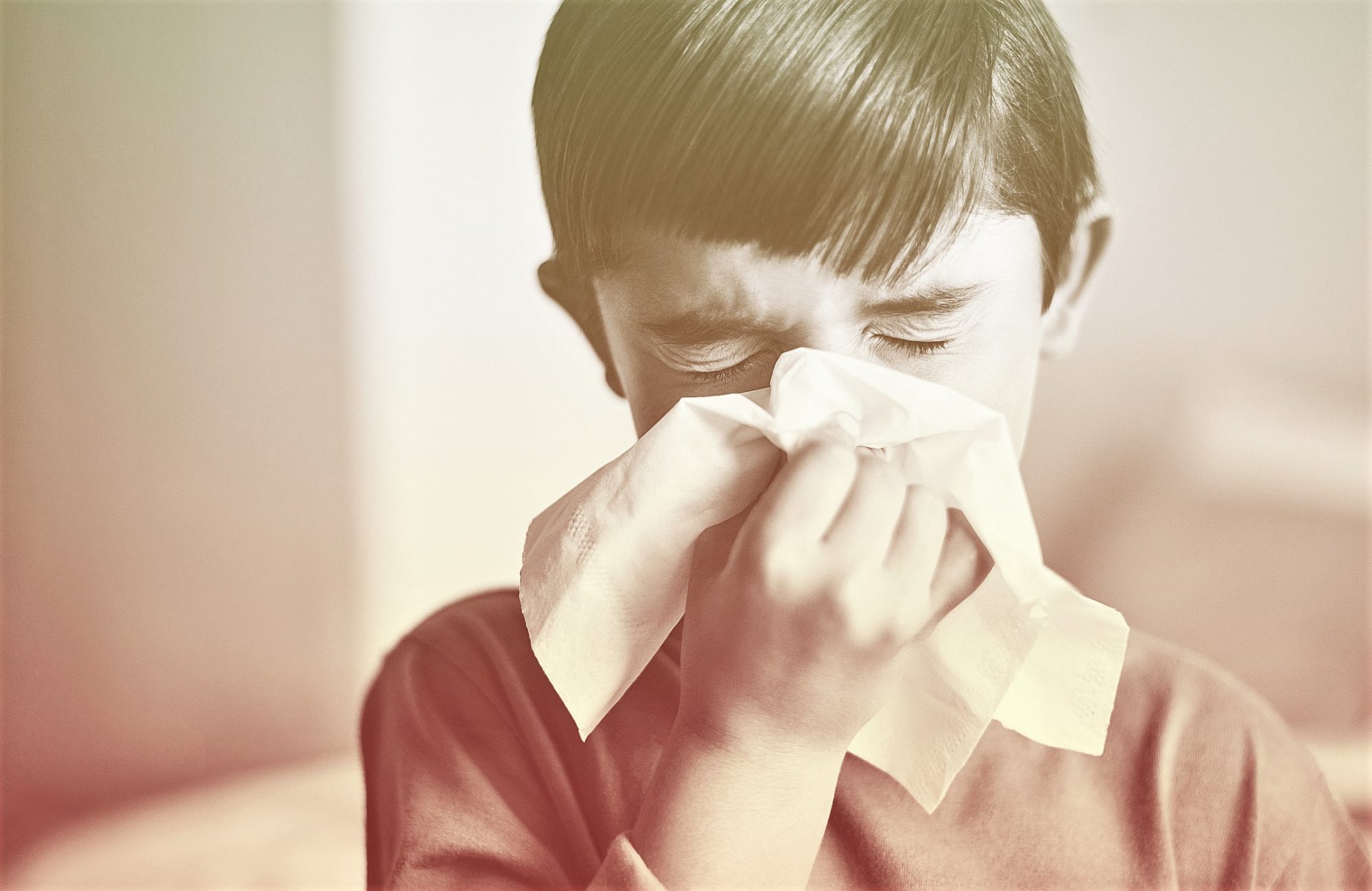In years past, parents wouldn’t hesitate to dismiss itchy eyes or a sore throat as signs of seasonal allergies. They might even send their children to school with these minor symptoms. But the coronavirus pandemic has changed everything—and it’s possible that something as simple as a runny nose could indicate the contagious respiratory disease that’s infected millions of Americans. So how do you know whether your child has COVID-19 or allergies? We spoke with experts to break down the telltale signs.
Does My Child Have Allergies?
Allergies happen when the body perceives certain substances as threats, and the immune system responds by producing antibodies and histamine. This prompts an inflammatory response that causes telltale allergy symptoms. Common outdoor allergy triggers include pollen from grasses, trees, and weeds. Indoor allergies might be caused by pet dander, dust mites, and mold, explains Sanjeev Jain, M.D., a board-certified allergist and immunologist at Columbia Allergy.
Allergy symptoms include:

Does My Child Have COVID-19?
The coronavirus is a respiratory illness caused by a virus (SARS-CoV-2). It commonly spreads through close contact with an infected individual. Symptoms appear within two to 14 days of exposure to the virus. COVID-19 cases in children range from mild to severe—and “recent studies have shown that up to one-third of positive children have no symptoms at all,” says Natasha Burgert, M.D., a board-certified pediatrician for Pediatric Associates in Overland Park, Kansas.
According to The Centers for Disease Control and Prevention (CDC), COVID-19 symptoms include:
Allergy Symptoms vs. COVID Symptoms: The Key Differences
The coronavirus has caused a constant stream of worry in allergy sufferers. They wonder about every ache and pain in their body: Is sneezing a symptom of COVID-19? Is sore throat a symptom of COVID-19? How about a runny nose?
Thankfully, as the pandemic has progressed, experts have learned more about COVID-19 in children. They found that “coronavirus symptoms are increasingly distinct from the typical symptoms of seasonal allergies,” says Dr. Burgert. Here are some key differences between allergies and COVID-19.
Allergies don’t come with a fever or body aches.
Fever is a common symptom of COVID-19, but allergies rarely produce a rise in body temperature. Along those lines, allergy sufferers don’t usually have body aches, chills, or extreme fatigue.
COVID-19 doesn’t cause sneezing.
Is your child sneezing up a storm? They’re likely suffering from allergies. Sneezing has not been identified as a common symptom of COVID-19.
Allergy symptoms are dominated by itching.
“Seasonal allergies are dominated by itch,” says Dr. Burgert. Itchiness of the eyes, nose, or throat usually points to an allergic reaction.
Allergies improve with antihistamines—but COVID-19 does not.
If you have allergy symptoms, they'll likely improve with antihistamines like Zyrtec, Allegra, or Claritin. Steroids, nasal sprays, and eye drops might also relieve symptoms. Antihistamines are unlikely to be effective against COVID-19, says Dr. Jain.
Allergy symptoms happen at predictable times.
According to Dr. Jain, many children with allergies have experienced symptoms before and they usually come in a pattern. Kids with ragweed allergies, for example, feel sick during the fall, while pollen allergies strike in the springtime. Indoor allergies tend to hang around throughout the year.
Allergy symptoms are triggered by specific substances.
Allergy symptoms appear when a person comes into contact with the allergen. “These symptoms typically get worse when a person has more frequent exposure to the allergen, and they tend to improve when exposure to the allergen is reduced,” says Dr. Jain. “For example, a person with a dust mite allergy may experience sneezing and nasal congestion while inside their home, but these symptoms may improve after spending several hours in the backyard. Therefore, allergy symptoms can be intermittent and may vary throughout the day and week.” COVID-19 symptoms, on the other hand, are less likely to vary in severity throughout the day, says Dr. Jain.
Still Confused? Here’s What to Do
A few coronavirus symptoms overlap with allergy symptoms—mainly runny nose, sore throat, and coughing—but there are also key differences. If you think your kid might have COVID-19, or if they’ve had a known exposure, they should get tested. “Ultimately, if you are worried that your child has any symptoms of illness, the only way to know if they have COVID-19 is to get an accurate test,” reiterates Dr. Burgert.
In the meantime, she recommends watching for symptom progression. “If a child has been potentially exposed or is not improving by day five of symptoms, most doctors would recommend testing,” says Dr. Burgert. “Since these recommendations change by region, talk with your child's pediatrician for best local guidance.”
Also, keep in mind that respiratory symptoms don’t automatically point to COVID-19. The flu, common colds, strep throat, and other viruses are still circulating as well. Talk to your child’s pediatrician about any concerns.





